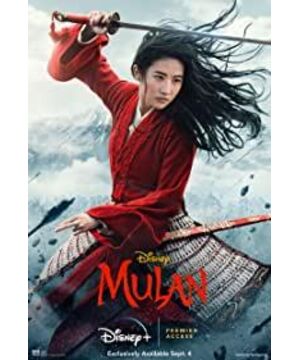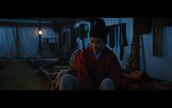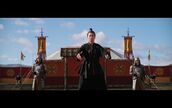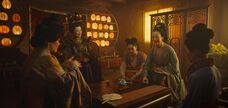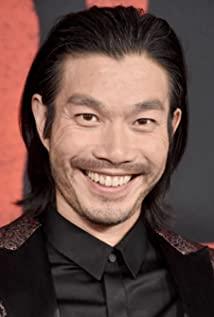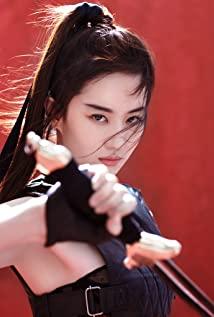Disney's live-action version of "Mulan", I've been looking forward to it for so long, and I'm really disappointed after watching it. It has been 22 years since the animated version. I thought Disney would have a deeper and better understanding of the story of Mulan, but I was wrong. The live-action version of Mulan made me disapprove, super embarrassed, and even didn’t understand this. What is the film trying to say.
If Disney's audience is relatively younger, I don't think this live-action version is a movie that children can watch. On the other hand, looking at the animated version in 1998, it not only fascinated me when I was a child, even at this age, every time I watch it. The blood is boiling, and Amway also accompanies the brush over and over again after giving the little niece.
So, what is the weakness of the live-action version of Mulan compared to the animated version? In this film review, I don't talk about how ugly the propaganda posters are, or whether the historical geographic information is correct. I just want to talk about how Disney, after 22 years, has taken the story of the heroine we like and our culture to the end. understand what it looks like.
1. Opening credits
One thing to say, the brush font in the title of the live-action version is still very good. But, let's compare the titles of the animated version!
The animation version starts with ink painting. From the mountain, to the auspicious clouds, and under the auspicious clouds, there is another ink painting of the Great Wall. Gradually, the ink painting becomes the scenery of the Great Wall in the animation version.
Our country began to build the Great Wall to defend against foreign enemies as early as BC, and the animated version created a title full of Chinese culture for us.
Then, the foreign enemy from the north invaded.
The live-action version of Rouran is full of Buffs, can catch arrows with empty hands, and can run up the vertical city wall against gravity.
The animated version of the Huns has no Buff blessing. If they want to cross the Great Wall, they use the wall-climbing weapon invented in my country since ancient times - flying claws (three-claw hook) - to climb the city wall.
After the Xiongnu attacked the Great Wall, facing such a tall, strong, and terrifying foreign enemy, our soldiers were not afraid of life and death, and lit beacon fires in front of Shan Yu, and then the beacon fires of the Great Wall were lit one by one. Soldier: "The alarm will soon spread across the country". The animated version here depicts our heroic and fearless soldier.
But what about the real version...
When the foreign enemy team with only a few Rourans ran against the gravity and fought against the city wall for a few times, our soldiers ran away while shouting "He is too strong"... Yes, escaped...
The background of the invasion of the foreign enemy in the north was completed, the emperor summoned a man from each household to join the army to defend the country, and then, Mulan appeared.
The live-action Mulan family lives in a Fujian-style tulou, which has been complained about by countless people. But what I want to complain about is, as a retired general's family, do you really want to live in such a shabby house with so many people? (I don't mean to belittle the Fujian Tulou. The Tulou is very good and distinctive. I just think that it doesn't seem to have any privacy and quality of life, and it doesn't look like a place where a general's family would live.)
The live-action version of Mulan has a Buff from childhood—“Chi”—a blessing that I can’t understand from beginning to end, which enables Mulan to wield guns and fly over walls.
The animated version is much more natural and comfortable.
The animated version of Mulan is an ordinary girl, and of course she has something extraordinary. We can see that she is very boyish. She must have disliked the ladies class since she was a child; she has her wit, even feeding chickens. Be smart about the little things. But even if she is like this, she will crawl and make cheat sheets in order to meet the matchmaker.
In the animated version, Mulan's home is a general's mansion with a house and a garden, a horse house and an ancestral hall~
What I don't understand is why the live-action version has to be so gloomy when it comes to Mulan getting married, and the animated version is much brighter at this point. Mulan is a person who wants to earn glory for her family, but in the ancient times when women were not allowed to study or serve as officials, marrying a good family was indeed the only choice. Perhaps, the live-action version is because of the blessing of "Qi", Mulan wants to use her "Qi" perfectly, so she hopes for other ways to win glory for the family. In general, I accept the live-action version of this part, except for the uncomfortable atmosphere. There are many people who criticize why it is said that getting married is equal to glory, but that era was like that, and it was precisely because of that feudal era that Mulan's innocence and greatness could be highlighted.
The composition of each person is diverse and complex, and Mulan is even more so. But in the live-action version of Mulan, the portrayal of the characters is simple and superficial.
Mulan: "When I went out on the black wind (horse), there were two rabbits running alongside us, and I thought, one of them was male and one was female, but you know, you can't really tell the difference, they Running so fast..." ——Does this literal translation of the two rabbits walking next to the ground show Mulan's intelligence and innocence?
When dressing up, a sneeze blew the rouge, is it showing Mulan's naughty?
Well, let's take a look at how the animated version expresses Mulan's diverse characters from the beginning of dressing up to the time before meeting the matchmaker (the time for a Disney special little song)!
The daughter of the general's family can appear on a horse as dirty as a man;
A cheat sheet was discovered, although it was cheating, there was also honesty in reporting to the mother;
Helping the uncle who lost chess to win in one fell swoop, embodying Mulan's wisdom;
Help the little girl take back the rag doll and reflect Mulan's justice;
Dissatisfied with her traditional makeup in the mirror, she pulled off a small bangs and portrayed Mulan's inner opinion;
The dressed Mulan actually has her little nervousness;
I don't usually take the ladies class, so I have to hurry up and act like other people, everything is a bit slower, but the learning is quite the same. But looking at the other ladies who are the same and unchanging, Mulan hesitated, reflecting the difference in Mulan's essence from them.
In the end, the live-action Mulan was in the gaffe of rescuing the tea bowl because of an accidental spider, and the animated version of Mulan was in the matchmaker's gaffe because the mascot (Cricket) she brought with her made trouble and burned the matchmaker's skirt and poured a pot of tea over it. , and eventually lost the favor of the matchmaker and missed the marriage of a good family.
In this blind date, how did Mulan's father recognize his daughter?
Live version:
After seeing Mulan dressed up, the father said, "I'm really lucky to see such a charming woman here." In our modern age, it is difficult for a father to say this sentence to his daughter. Mulan and her father are so awkward.
Animated version:
When his daughter saw the matchmaker's failure and was sitting sadly in the garden at home, the father sat silently beside his daughter: "Ah, look, this year's flowers are blooming so well! But, look, this flower is still in bloom. It hasn't bloomed. However, I am sure that when she blooms, she must be the most beautiful flower among the thousands of flowers." This kind of restrained, reserved and profound praise is really beautiful and exciting.
When the conscription team arrived at Mulan's house, Hua's father was obliged to accept the military post. Because of his distress and reluctance to his father, Mulan's heart began to change:
The emotional progression of the live-action version: I asked my father softly at the dinner table, and was stopped by my father’s slap on the table (I can’t see Mulan’s brave boyishness here); Watching her disabled father practice swordsmanship and crying; listening to her father’s teaching, the biggest Slogan— - Loyalty, courage, truth.
The mood of the animated version changes like this: Mulan ran to the recruiting team to plead (disregarding the humble status of women); she was so nervous that she was short of breath when she saw her father fall while practicing swordsmanship; she stood up at the dinner table and tried to dissuade her father; after being sternly rejected by her father Sadly, he ran to the courtyard; cried and meditated in the rain, and saw his mother reluctant to part with his father; his eyes became sharp, and he decided to join the army for his father.
The animated version is also super-flammable in the section where women disguise themselves as men. Under the super-burning BGM, Mulan ancestral hall said goodbye, stole the military post, took out her father's sword, and her eyes in the reflection in the sword were more determined; she used the sword to cut off her long hair, put on armor, appease the horse, and ride a horse. go with.
In the live-action version, there is no process of changing clothes, only after practicing swordsmanship, a transition is Mulan wearing armor to say goodbye in the mourning hall. Of course, her armor and saber belong to her father, but this is actually expressed through her father's line after discovering it in the morning: "My sword and my armor are gone!" Hua Mu still questioned: "Who the hell did this?" It was really long-winded and boring.
On the way to the military camp, both the live-action version and the animated version have a delay on the way:
The reason for the delay in the live-action version was - lost! Is the plot of the second middle school just to set off the appearance of the phoenix? Doesn't the screenwriter feel that this is detrimental to Mulan's IQ? (As for the phoenix, I am tolerant with a broad mind. I will be the patron saint of the Hua family just like the phoenix and Mushu, and the 12 zodiac signs of the giant stone dragon!)
The reason for the delay in the animation version is that Mulan has to learn how to act as a man, and after practicing it over and over again, it still doesn't look like it. This is the first time in her life that she has to act as a man completely, maybe year after year. helpless. The plot makes more sense.
With the help of the Patronus, Mulan entered the military camp. The style of the animated version is meant to be lighthearted and funny, so this is also full of laughs. The live-action version is as gloomy as ever. If it is said that getting married makes Mulan gloomy, why is she so melancholy when she enters the military camp? Well, let's understand it as being unaccustomed to military camp life and afraid of revealing our identity.
In the army, the instructors set a flag for the quality of soldiers:
Animated version: With discipline and courage, try to run to the heights and take down the arrows shot at the top of the wooden posts;
Live-action version: Only the strongest can (carrying two buckets of water) reach the top of the mountain...
In the animated version, we also witnessed the growth of Mulan and the change of this unit through a song.
As a girl whose physical strength is far less than that of a man, she is also a "sissy" who is weak in the eyes of others. In life, she is the target of bullying by other soldiers. Training is also very hard for Mulan. Perhaps he was considered "timid and cowardly" by Li Xiang, so he was persuaded to return to his hometown.
Before leaving, Mulan looked at the mission that represented the quality of a soldier, and began to try to climb to the top with discipline and courage. After failing again and again, Mulan began to think of a way. This kind of brute force task, even most men can't complete, how can this woman Mulan be possible! Although physical strength is inferior to that of men, wisdom is possible! The wise Mulan found climbing skills, and finally in the early morning, with the encouragement and cheers of other soldiers, she proved to Li Xiang that she not only possesses the qualities of military discipline, courage, but also wisdom.
And all the soldiers in this unit were infected by Mulan's spirit of being able to escape the pain of training, but not admit defeat. Soldiers who liked to bully Mulan began to respect her, and the entire army changed from a state of "forced enlistment" to an army that actively trained and improved rapidly.
In contrast to the live-action version, the changes in Mulan and the army left me speechless.
The change in the live-action version of the troops is that from the very beginning, under the oppression of various punishment measures and under the mediocre training, they began to shoot good arrows and martial arts with good guns...
The change of Mulan is that she accidentally (understood because she refused to admit defeat) exposed her original force "Qi", and then was asked why she hid this buff divine power, and then began to recall that she could practice martial arts at will without hiding her "Qi" since she was a child , and finally chose not to hide "qi", so it became powerful, and it was not difficult to climb the top of the mountain.
Therefore, the live-action version of Mulan is a woman with her own supernatural powers. She does not need to progress or grow, she just needs not to hide her superpowers.
——Is this a heroic character that Disney wants to describe after 22 years? Ordinary people are not qualified to experience and grow? Is it only possible for women with their own buffs to have the same eyebrows as men? The director is also a woman, but what kind of gender equality are you trying to talk about?
Well, in short, the army and Mulan have become stronger, so let's go to the battlefield!
In the live-action version, Mulan must be firmly attached to the three qualities of "loyalty, courage, and truth", even if it is extravagant to give other characters. The story is here, loyal, after the story, Mulan is loyal to the family and the country; brave, after the story, Mulan heroically kills the enemy and goes to the battlefield; then, there is no "true". What the film believes is "true" is that you can't deceive your daughter's body. I'm afraid that apart from this, the screenwriter can never think of other expressions.
So Mulan threw off her helmet, loose her long hair, and took off her armor (maybe she also threw away the corset, suffocating Mulan baby!), because she has "qi" and she can kill without protective gear, but that's your father The armor of triumph when you were a general, is it really good to throw it away?
Furthermore, the state of "escape" really is whether our army or a foreign enemy. Our army flees when it encounters a strong enemy, and when a foreign enemy encounters a woman with "qi", she also runs away shouting "witch" in horror. Is this quality really suitable for war?
For the time being, no matter why the northern enemy troops would carry catapults with them when they invaded as cavalry, in short, Mulan stood in the middle of the battlefield where the two armies were fighting. After pulling a few arrows of hatred, the enemy found that there was an ambush behind them, and immediately turned the catapult to shoot at the snow mountain, creating an avalanche for himself. And Mulan, who was clearly at the foot of the snowy mountain, not only ran fast, but also rushed back to her position to save her comrades. Well, she has "qi" and she can do anything.
Let's take a look at the animated version of the battlefield.
In the animation version, Li Xiang's team marched towards the main force (Li Xiang's father's camp) as a support force, as the support of force and ammunition. After arriving at the main force camp, they found that it had been captured. The next target for the Xiongnu to capture the army was the imperial city. Li Xiang's team had to take a shortcut to the imperial city, not only to protect it as much as possible, but also to send the news that the army had been captured. But on the way, Mushu accidentally fired a cannonball, which attracted the siege of the Huns from all directions. Li Xiang's team quickly evacuated to a sheltered area suitable for firing guns, ready to fight with eggs.
The enemy team in the animated version is so powerful that the audience can't help but be nervous and scared. There was only one cannonball left at this time, so Li Xiang planned to capture the king first, and let the last cannonball aim at the leader Shanyu.
Mulan, who was in Li Xiang's team, suddenly saw the sloping snow cliff between the two armies in the reflection of the sword. With a clever idea, she grabbed the last cannonball and ran to the bottom of the snow cliff. Even though Shan Yu, the leader of the other side, was getting closer and closer, Mulan was not afraid. When everyone, including Mushu, including the audience, thought that Mulan wanted to make a contribution to blow up Chanyu, the cannonball flew towards the sloping snow cliff.
Mulan created a huge avalanche, big enough to drown the entire Huns' mighty team. Seeing that his team was about to be wiped out, Shan Yu turned around and saw Mulan's fearless smile, and slashed into Mulan's stomach with a sword in anger (fortunately, the animated version of Mulan didn't throw armor). Shan Yu's horse was frightened by the avalanche, and Mulan took the opportunity to ride back to his position and rescue Li Xiang. The victorious Mulan was appreciated by Li Xiang and his comrades, but in the end she also fainted due to her injury.
Mulan, who woke up, exposed her female body because of bandaging the wound.
Mulan, who was expelled by the army, cried, and in the cold and lonely snow-capped mountains, she began to reflect on herself: "Maybe I didn't do it for my father, maybe I just wanted to prove that I have the ability, so I look in the mirror later, just like that. I will see a heroine. But I was wrong, I am still myself." - Yes, this sentence is the most profound meaning that Disney wants to tell us in the animated version, the story of Mulan, which seems to be Mulan was distressed and reluctant to give up her elderly father. She disguised herself as a man on the battlefield, which seemed to be filial piety, but in fact, Mulan spoke out for the despised women of that era, "I did this just to prove that I have the ability", Mulan wants to prove that what a man can do, a woman can do the same, and a woman should not only be an accessory to a man, but that a woman can be independent, self-improving and successful. ——Here, I admire Disney’s ability to tell stories. The essence of a film should not be mentioned over and over again through plain lines. Instead, in a scene paved with various reasonable stories, just one sentence can add the finishing touch and sublimation.
But the result at this time made Mulan sad. Even if Mulan alone annihilated the entire Xiongnu army and made such a military exploit, she still couldn't compare to her female body. The recognition she wanted to get was wiped out after her identity was revealed. . But just as Mulan was about to accept the reality and go home, she found that Shan Yu and a few other party members climbed out of the snow. Even if the reality hit Mulan like this, she still turned around and ran towards the imperial city as a woman.
In the live-action version, Mulan, who took the initiative to admit her daughter, was also expelled by the army.
But at this moment, there is only a mediocre drama of "persuading surrender" and "stubbornly refusing to surrender". During the conversation, Mulan learned that the leader of Rouran, Tiaohu Lishan, had taken part of the team to the imperial city (the villain witch revealed it for free!)
Mulan immediately caught up with the army, expressed her intention, and narrated Rouran's plan. Although the general did not accept it at first, Mulan's comrades said in their lines: "I believe in Hua Mulan." So he immediately changed the general's mind and ordered Mulan leads the army.
We turn to the animated version again.
The animated version of Mulan has caught up with Li Xiang's team in Beijing, and has also experienced being ignored by Li Xiang (Li Xiang does not want Mulan to be blamed for bullying the king), and has also experienced the process of telling the masses but being distrusted because of her daughter . Until the ambush Xiongnu appeared and kidnapped the emperor, Mulan, who did not give up, rushed to the team to rescue the emperor.
In the animated version, the comrades-in-arms are willing to believe that Mulan's performance is like this: Mulan anxiously thought of a way to enter the palace. She called her comrades. I was very surprised to see this scene (you ran away without waiting for my order?). Mulan asked her comrades to dress up as concubines (I can dress up as a man, and you can dress up as a woman), and the method of climbing over the wall is closely related to the method used by Mulan to climb to the top of the barracks to take arrows when she refuses to admit defeat.
Suddenly, a big hand patted Mulan's shoulder. It turned out that our general, Li Xiang, was also here. There's not a single line about trust here, just the BGM of that super-fiery man.
In the live-action version, the hijacked emperor is like a fat sheep waiting to be slaughtered. Let Rouran sharpen the knife and make sparks beside him. This scene finally made me laugh out loud.
Animated version: Shan Yu: "Kneel down for me!" Emperor: "Let the wild wind cry, Taishan will never bow his head."
In the animated version, the method to save the emperor was probably also thought up by the witty Mulan! But at the moment when she was able to escape, Mulan hesitated when she saw Li Xiang who was in danger. At this time, Shan Yu also wanted to use the rope to chase the emperor, and Mulan not only cut off the escape rope heroically, but also showed that he was the soldier who created the avalanche, allowing Li Xiang to escape. At this moment, Mulan showed not only heroism, but also the heart that dared to love.
Mulan, who attracted Shan Yu to pursue her, also tried to find a way while fleeing. She fled on the roof and saw the fireworks display in the palace, and she was once again anxious. In the ultimate fight with Shan Yu, he used a fan to pin Shan Yu's sword, and finally, a cannonball shot Shan Yu at the fireworks stand to detonate. Mulan wins.
And the live-action version of the ultimate battle...
The live-action version of Mulan is blessed with the "Qi" Buff, so she doesn't need to think of anything, she just needs to actively challenge it. Mulan's comrades-in-arms dealt with Rouran's remaining party, while Mulan found the Rouran leader and the emperor, and threw the leader down. The leader who fell to the ground happened to touch a pair of bows and arrows, and just as he was shooting at the emperor, Mulan also cut off the rope that bound the emperor's right hand, and the emperor picked up the arrows with one hand (why would such a powerful emperor be tied here by the villain) ???), threw the arrow over Mulan again, Mulan's blue bars were full, and with a backflip, the arrow was kicked back and shot at the leader of Rouran, the villain > pawn.
So, on this night of victory, Mulan came to the splendid palace, and the emperor gave the royal guard the official position, Mulan resigned and asked to return home.
Mulan, who had returned to her hometown, stood in the middle of the tulou, attracting all the neighbors to watch. Father also greeted and greatly praised Mulan in the crowd. Then the reward team sent by the emperor also came to this much-anticipated tulou, and continued to praise Mulan, "The whole country owes her a favor"... Okay. And this scene even stunned the matchmaker... er...
And in the end, Mulan actually accepted the honorary title... This... what about resignation? It turns out that Mulan does not want power, but must accept power under the witness of the neighbors, just to slap the neighbors in the face? In short, at the end of the film, Disney showed us such a heroine who lives in the eyes and mouths of others, which inevitably makes people feel how narrow-minded Mulan and her family are.
Written here, our animated version also ushered in a wonderful ending.
The emperor first pretended to reprimand Mulan, then changed the subject and gave Mulan the highest respect and recognition. The Honorable Ninety-five bowed to Mulan, followed by the shocking kowtow of tens of thousands of people.
The emperor was sealed and Mulan resigned, but she wanted to win glory for the family. She did not refuse the sword of Shan Yu, who represented merit, and the emperor Pei Yu, who represented honor. This moment is like a naughty granddaughter hugging an ordinary grandpa. The emperor smiled reassuringly, and Mulan returned in a dashing manner.
At home, there is a father who is waiting for his daughter, but does not know when her daughter will return. The late blooming flower has also withered silently.
The honored Mulan returned home eagerly. She didn't alarm anyone, not even her mother and grandmother. The first person she ran to was her father.
Mulan: "Dad, I brought you Shanyu's sword and the emperor's jade. These are all given to the Hua family to honor their ancestors."
But the father put aside the two treasures that outsiders seemed so important, and held up Mulan's face: "The greatest honor of the Hua family is to have a daughter like you. Daddy really misses you!"
"I miss you too, Daddy."
This quiet and warm ending not only allowed Mulan to prove herself, but also once again described the warm family of Mulan.
This family has never been ashamed for not having a son, so in the end, the Mulan family is not waiting for Mulan to bring back any glory. What they prayed every day was that Mulan would be safe on the battlefield, and that her daughter would not be killed in the military camp; Looking forward to having a grandson-in-law!).
—— This is the 1998 animated version of Mulan, the story that Disney told us.
--------------
Every character portrayal in the animated version, every storytelling, is very successful.
The father in the animated version loves his daughter inwardly and implicitly, and never thinks that a woman is useless. He praises her with the most beautiful words. At this point, in the live-action version, I can only see that the father of Hua values Mulan because of "qi".
In the animated version, although the mother also has a headache for this boyish daughter, she never reprimands Mulan for being unruly, and her eyes are full of love. At this point, in the live-action version, I can only see Hua Mu's disgust with Mulan just like outsiders.
The vicious and ruthless Shan Yu in the animated version said, "How many people do you need to go back to deliver the letter?" "One."; "Besides, a little girl lost her doll and should be returned to her." I'll read these villain lines until now. feel terrible. At this point, in the live-action version, Rouran only has a fierce face, and the purpose is to avenge her father.
General Li Xiang in the animated version is handsome, heroic and just, strong and mighty, filial and loyal, so he is worshipped by Mulan and liked by Mulan, but he is too shy to speak when he is secretly in love with Mulan. On this point, I can't see anything that Mulan likes about Hong Hui in the live-action version. I only saw a small conversation in the night, and it seems that I have feelings?
The comrades in the military camp in the animated version are cute and funny, rude and kind, from a lazy team to a heroic team, from bullying Mulan to respecting Mulan. At this point, in the live-action version, I can only see a group of NPCs who have no sense of existence.
The emperor in the animated version is tall, majestic, discerning right from wrong, and amiable. He can be indomitable in the face of the enemy, he can also recognize Mulan by ignoring male superiority and female inferiority, and can assist Li Xiang: "Plum blossoms come from bitterness and cold, and they show their beauty after suffering. A good girl is not something you can meet every day." This point, in the live-action version, I can only see a tool man sitting in the spotlight with ugly makeup (the skill is so good that he doesn't need to be protected at all).
There are also Mushu, cricket, the souls of ancestors, and grandma in the animated version, all really cute!
And the animated version of the national match is not only star-studded, but the lines are also translated really well, and they have made a very beautiful adaptation of the poems; Jackie Chan and Coco Lee's Mandarin version of the film is both in line with the situation and beautiful. . I remember that when I was a child, I watched the national version of this animation without subtitles. I didn't really understand some of the poems and lyrics at the time, but even so, I thought it was a beautiful animated film.
It is these cute, interesting and rich images, plus a meaningful story, that make up the super beautiful Disney animated version of Mulan. Although the Mushu, the soul, the anthropomorphic horse, the cricket, and the villain's eagle also exist in the play, but the animation that can be more imaginative does not add any fantasy to any character, so we I saw such an ordinary Mulan who grew up from time to time. The whole film does not need lengthy lines to tell, we can also see Mulan's various character characteristics, so three-dimensional and full. Among the many features, Mulan's wisdom is the most displayed in the film to promote the development of the plot and the reversal of the crisis. In fact, a woman's physical strength cannot compete with a man's, but wisdom is often more useful than physical strength most of the time. Wisdom is no difference between men and women, and even women's wisdom and calmness can surpass men's. The animated version of Mulan uses 90 minutes to tell a good story that is smooth and reasonable, and has a sense of rhythm.
But the live-action version, 120 minutes, procrastinated plot, compared to the animation version, I feel that screenshots are not enough, I can't even take a few pictures of the live-action version. And this story is the "Qi" Buff set early in the morning, so that Mulan's physical strength and force can be like a man, or even surpass that of a man. She can get lost, take off her armor and go to the battlefield. No matter how IQ and EQ are offline, she can succeed in the end. So Mulan here, she is not an ordinary person, she is a superwoman. As ordinary people, we, the audience, cannot empathize or recognize that our heroine is such a woman who can succeed without growing up.
In short, the story of Mulan, just like that, went from a profound animated film about the status of women 22 years ago to today’s Force Woman sci-fi film. Mulan, from a Disney Chinese "princess" who grew up by her strength 22 years ago, has become a member of the Fulian today. Therefore, the live-action version of Mulan is not the Hua Mulan that we sang in the past, and she cannot afford the word "women". Maybe if you watch this movie as Marvel or DC, you can barely accept it as a bad movie that hasn't been made well. Compared with the animated version, this live-action version is really too weak to be weaker.
View more about Mulan reviews


